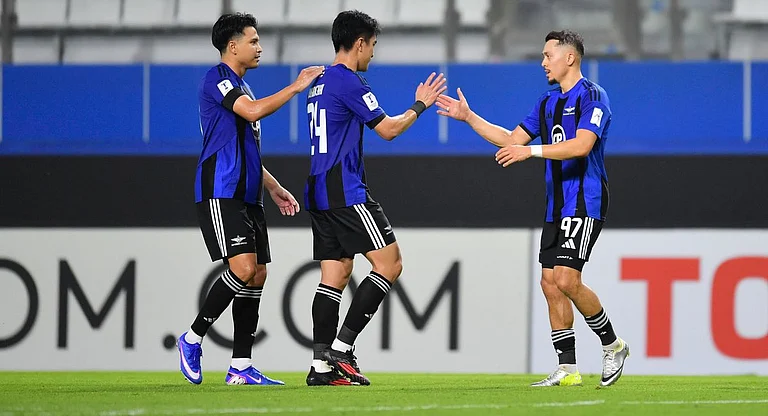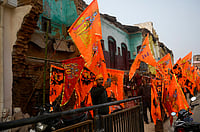Beginning with the slums inside AMU, the newly-formed team found there were around 40 children who badly needed care and attention. And that meant funds. For Faraz, with his upper-middle class background, it was perhaps the first encounter with financial difficulty. The team started with a poster campaign to generate awareness about the abysmal living conditions of the slum-dwellers. Reminisces Faraz, now in his early twenties: "At that time we'd all run out of pocket money", so the team made newspapers their canvas and the AMU hostel rooms their studio. About 85 posters were painted overnight and pasted all over. "Next day it created a sensation," says Ghazal, who was the first to join Faraz. Soon after, the team began collecting funds—anything from a rupee to a hundred. Some senior doctors also helped when they heard TEARS was planning a medical camp for slum children. With the medicines supplied by medical practitioners and the Rs 4,500 they'd collected, TEARS was able to provide a thorough medical check-up—and in some cases extended medical advice—to all 40 children. Within a fortnight, a counselling programme too was set up, they also collected old clothes and gave them to 175 families in the AMU slum. Then they identified children working in lock factories, and about fifty children, from lock factories and dhabas, today attend a play-school in a helping professor's residence.
For a while, in '98, the core members in AMU managed TEARS on their own as Faraz after graduation was back home in Lucknow. Homecoming, however, was no holiday for the young enthusiast. Here the challenge was greater. When he approached doctors and the administration for help they scoffed at his efforts. But he persevered and today he has a group of 20 youngsters working for TEARS in Lucknow. Here too, they sought to alleviate problems of slum-dwellers. After a survey of a slum in the Thakurgunj area of Old Lucknow, it was discovered that only eight out of 132 families had access to private practitioners. TEARS sought to remedy that and has since worked incessantly to provide basic facilities to these people.
The hard work put in by Faraz is clearly visible in Thakurgunj today. TEARS also arranged the admission of at least a dozen children in a nearby government school. The team is also busy working for the upliftment of another slum in the Trans-Gomti area of the city. Despite some help from the Red Cross in Lucknow, Faraz knows it's a big task, but as he says, "One has to face these problems instead of turning away from them." Meanwhile, he's back in AMU to join the Department of Mass communication. "This department will teach me how to reach my goal," says Faraz con-fidently. For he's now going to Bhopal, where along with teacher Debashish Chakraborty, he's going to work on a documentary on the people affected in the Bhopal gas tragedy. "I want to reveal the true picture," he says with passion. If you share that feeling contact him at Room no. 175, Mohammad Habib Hall, AMU, Aligarh-202002, or call him on this mobile no. 9837069865





















